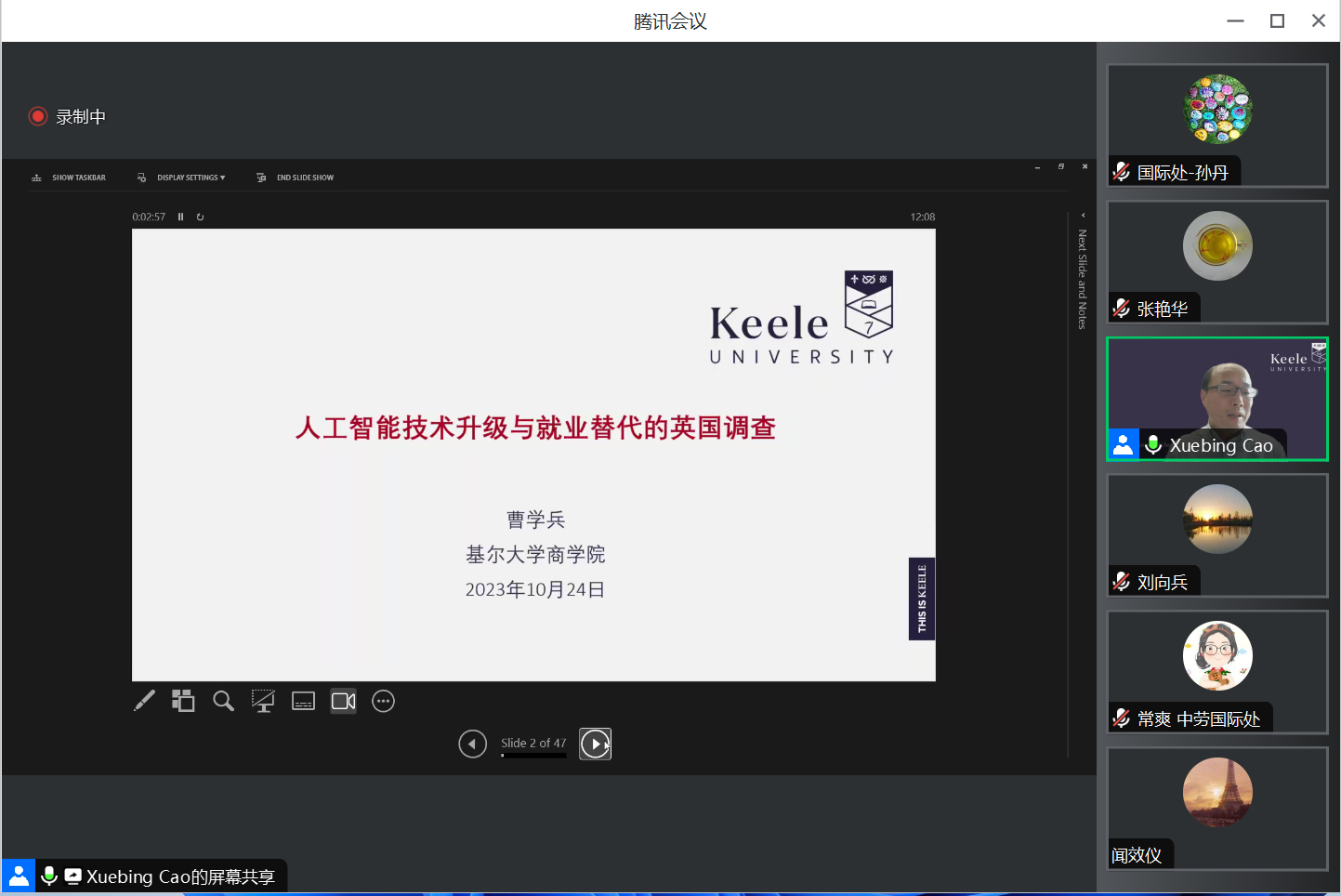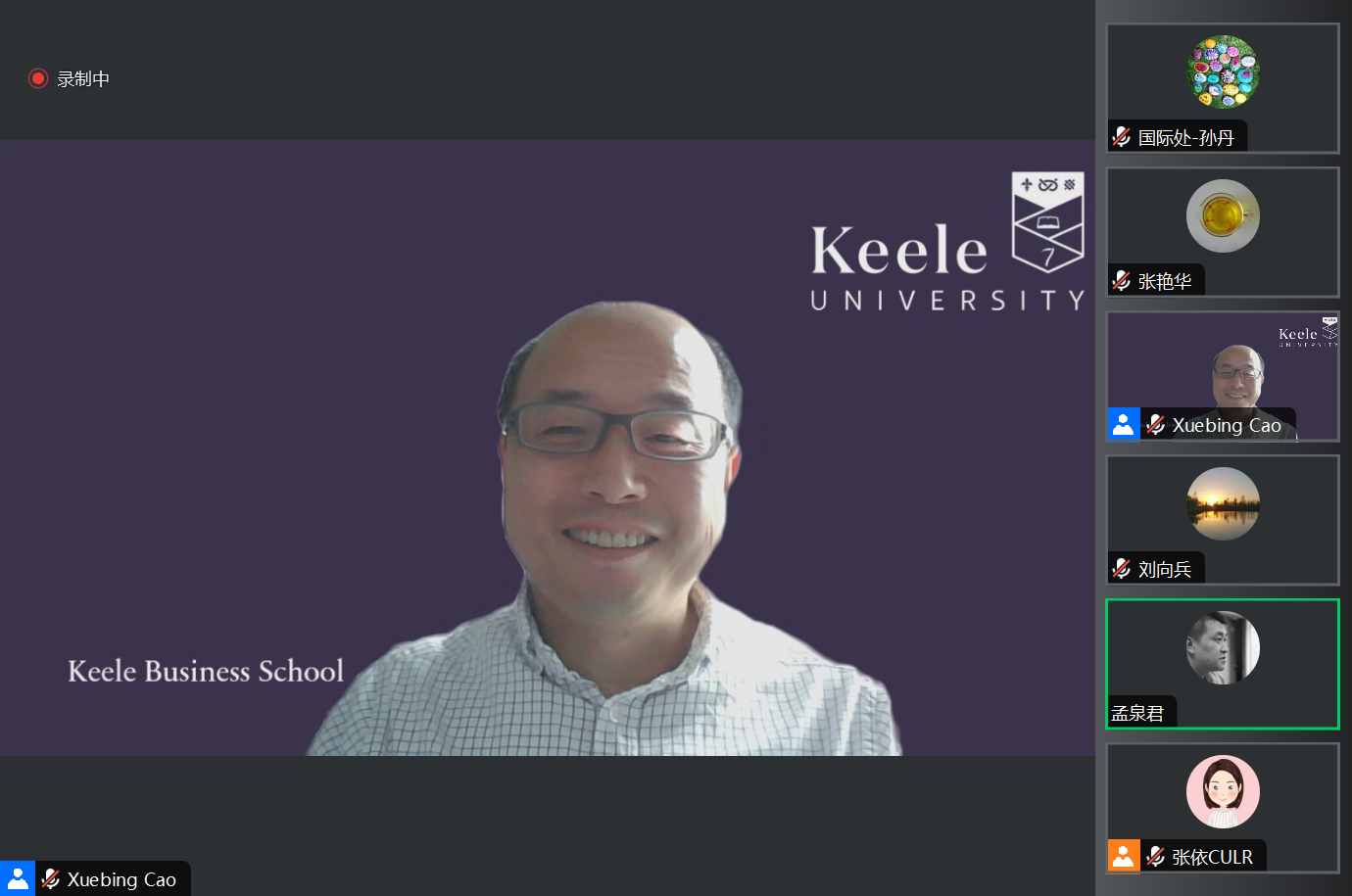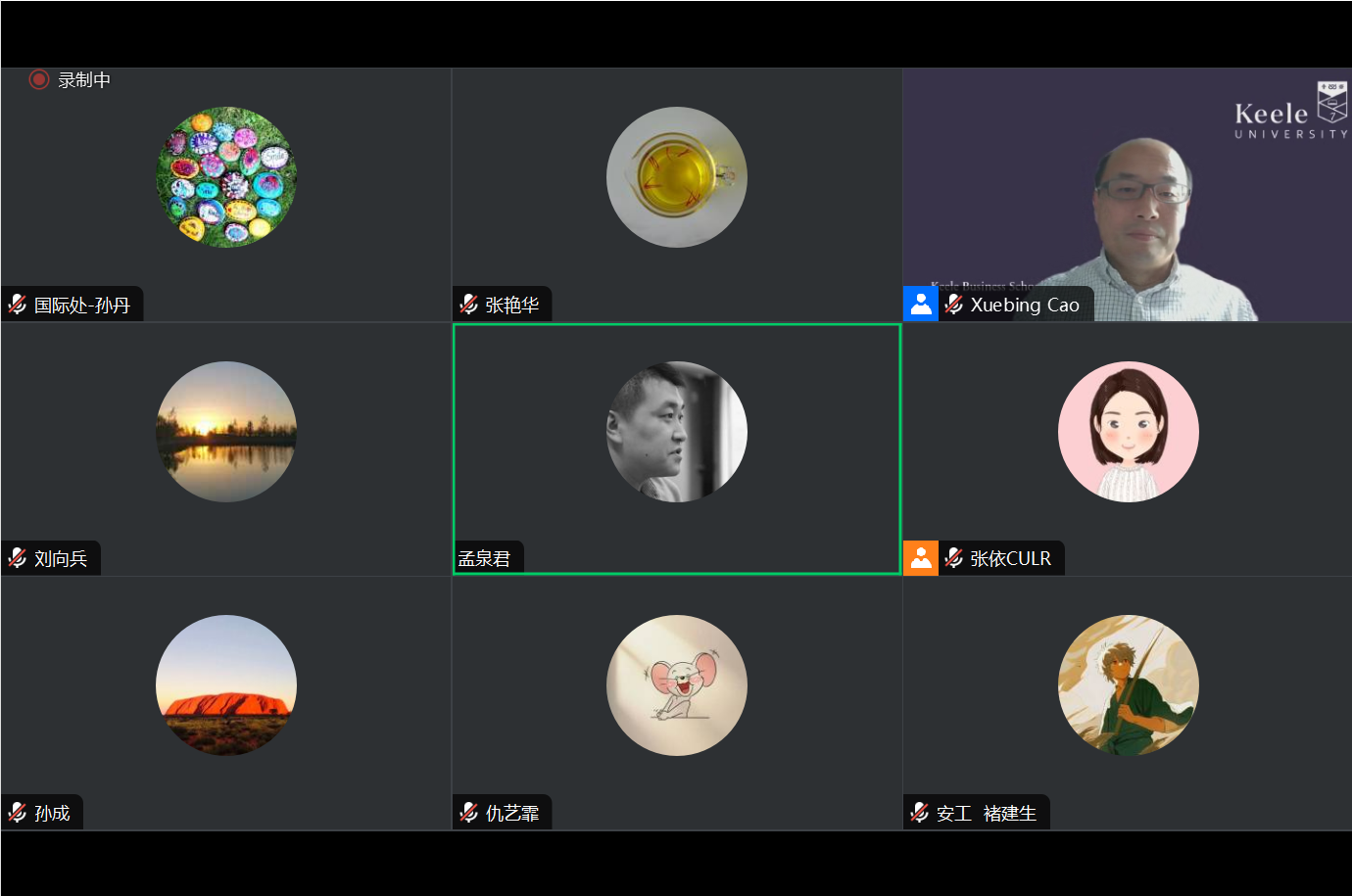On the evening of October 24, the annual serial lectures on the cutting-edge hot spots in the field of labor, organized by the International Office of Cooperation and Exchange of our university and co-organized by the School of Labor Relations and Human Resources, were held online. As a keynote speaker, Dr. Xuebing Cao, Senior Lecturer in Human Resource Management at Keele Business School, was invited to give a report entitled "A Survey of AI Technology Upgrades and Employment Substitution in the UK". Liu Xiangbing, Secretary of the Party Committee of our university, attended the lecture, and more than 50 experts, scholars, teachers and students from inside and outside the university attended the lecture online.

Secretary Liu Xiangbing expressed his gratitude to Dr. Xuebing Cao for giving many lectures to the teachers and students of our university, affirmed the long-term friendly cooperation between our university and Keele University, and cordially invited the delegation of Keele University to visit our university.

Based on his own research, Dr. Xuebing Cao introduced the theory of "threat" of AI and its base impact from the theoretical perspective, and used detailed data to show the employment rate, unemployment rate, labor vacancy rate, average weekly wage, full-time and part-time employees, employees and self-employed workers in the UK in the past decade. He used this as a clue to outline the prospects of the UK's AI specialty and the impact of artificial intelligence on the UK's social economy and labor market. He believes that the upgrading of AI technology itself is not good or bad, and relevant policies should aim at increasing social well-being, rather than passively meeting the negative effects of job substitution. Maintaining and improving the quality of new jobs created by AI is more important than labor substitution, so strengthening social dialogue and regulation among governments, employers and workers is the key to ensuring high-quality jobs. He pointed out that the theoretical research on AI needs to be followed up in time, and the introduction of corresponding policies needs to be more flexible and adequate.

During the discussion session, Associate Professor Meng Quan, Director of the Department of Labor Relations of the School of Labor Relations and Human Resources made insightful comments and responses from the perspectives of the risks and impacts of AI transformation in digital intelligent society on the labor market and industrial chain in China and the UK, the negative impacts of AI on the protection of labor rights and interests in new forms of employment and the transformation of labor force, and the negative impacts of AI on the transformation of labor force, and the new trends brought about by the commercialization of AI in the UK for corporate organizational changes, employment methods, management models, and flexible employment. In the interactive session, Dr. Cao Xuebing conducted in-depth discussions with participants on the impact of generative AI on China's labor market, how to strengthen the skills transformation of new employment models and new industry workers under the development of AI, and the substitution effect of AI on task-biased and technology-biased workers.

Dr. Xuebing Cao is currently a senior lecturer in Human Resource Management at Keele Business School. His research interests include comparative labor relations, migrant workers, labor markets, trade unions, performance appraisal, wages, work-family conflict, etc. He has presided over projects such as "Collective Wage Negotiation and Changing Labor Relations in China" and "International Investment, Labor Market and Labor Relations: Sustainable Development and Challenges Facing Kenya". His current research topics include "Belt and Road Initiative and Decent Work: Opportunities and Challenges in East African Countries", "Human Capital and the Mobility of New Generation Migrant Workers", and "New Approaches to Union Organization in the Platform Economy". He has published many journal articles and serves as an editorial board member for journals such as The International Journal of Human Resource Management and HR Asia.
(International Office of Cooperation and Exchange, School of Labor Relations and Human Resources)
